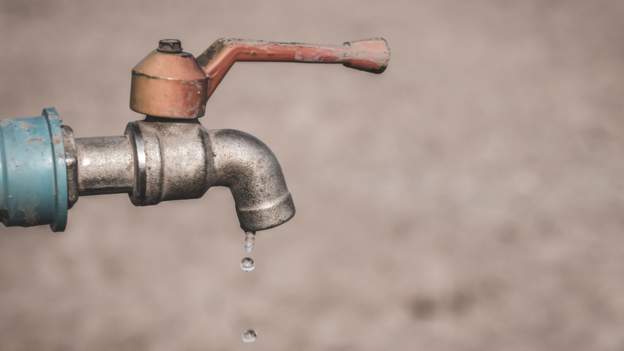The price of water increased by a massive 94.2% in December 2022 from the previous year. This indicates a record high with water being the food inflation component with the highest inflation.
This was revealed in a press release by the Ghana Statistical Service dated January 11, 2023. In the release, the general year-on-year inflation was 54.1%. Food inflation alone was 59.7% while non-food inflation was 49.9%.
The food inflation was calculated based on 15 components out of which water inflation was the highest. This was followed by fruit and vegetable juice inflation of 84.6% and then milk, other dairy products, and eggs inflation of 82.2%.
Water inflation figures have been very high in 2022 with average year-on-year inflation of 49.2% with the four consecutive months of September, October, November, and December recording 58.9%, 64.3%, 93.2% and 94.2% respectively. This is a significant deviation from the 2021 average water inflation of about 0.35%.
The water price increases
The National Association of Sachet and Packaged Water Producers (NASPAWAP) recommended that one iced sachet water (pure water) should be retailed at 60 pesewas effective Monday, October 31, 2022. This was the second time in consecutive months that the retail price had been increased by NASPAWAP.
Before this, there had been increments in the price of a sachet of water from 30 pesewas to 40 pesewas in April and then from 40 pesewas to 50 pesewas in September 2022.
Additionally, a bag of sachet water – containing 30 500ml sachets - which was being sold by retail trucks at GH¢7 in September was sold at GH¢10 in October. The retail price at mini shops which was GH¢9 increased to between GH¢12 and GH¢15 depending on the location of the shop.
The NASPAWAP attributed the increase in water prices to the combination of severe depreciation of the cedi, increment in fuel prices, and inflation.
Meanwhile, sachet water is the main source of drinking water in Ghana.
Sachet Water
The 2021 Ghana Population and Housing Census - General Report Volume 3M; Water and Sanitation, revealed that 37.4% of households use sachet water as their main source of drinking water followed by pipe-borne water which is used by 31.7% of households and borehole/tube which is used by about 17.7% of households.
The data also suggests that the use of sachet water as the main source of drinking water is largely an urban phenomenon (51.5%). It is the most used source of drinking water in Greater Accra (70.7%) and the least in North East (1.8%), Upper East (2.2%) and Upper West (2.6%) regions. Also, pipe-borne water is used by 33.6% of households in urban areas.
However, in rural areas, borehole/tube well is used by 33.6% of households, and pipe-borne water is used by 28.8% of households.
The Galamsey menace and the water inflation
The Ghana Water Company Limited (GWCL) has over the years complained of the increasing cost of treating water and the regular repair and replacement of damaged equipment following rising turbidity levels of water bodies due to illegal mining activities.
In October 2022, the GWCL indicated that the cost of producing water had increased tenfold as a result of illegal mining activities, hence Management resolved to pass the cost to the consumer.
In an interview with Blessed Sogah on The Pulse on Tuesday, October 11, 2022, the Managing Director of the company, Clifford Braimah, noted that after a recent tour with the Minister for Sanitation and Water Resources, Cecilia Abena Dapaah to some mining communities in the Ashanti Region to assess the state of water bodies, it was evident that all stakeholders had the responsibility to join forces to chase out “galamseyers”.
According to him, if the quality of the water improves when the galamsey fight is successful, costs will reduce and tariffs will come down. “…for the ones that you can control, the self-inflicted ones, for me as the Managing Director the cost must be passed on”, he added.
Meanwhile, the Minister of Sanitation and Water Resources, Mrs. Cecilia Abena Dapaah has also indicated that 90% of sachet and bottled water is packaged from water produced by the GWCL and that only a few producers use wells and springs.
Latest Stories
-
‘Democracy must work for the people’ – Mahama promises tangible change as he resets Ghana
1 hour -
Why Akufo-Addo calls me Johnny – Mahama reflects on rivalry, respect, and history
1 hour -
‘A beacon of hope’ – Prof. Opoku-Agyemang’s rise lauded by NDC Professionals Women
2 hours -
Ghana’s leadership a beacon of hope for Africa – Tinubu
2 hours -
Explosive fertiliser in Ivory Coast harbour nothing to fear, officials say
2 hours -
Nigerian atheist freed from prison but fears for his life
3 hours -
Djokovic still has ‘trauma’ over Covid deportation
3 hours -
Constitution isn’t broken, but it needs a service – Former Chief Justice Sophia Akuffo
3 hours -
Macron accused of ‘contempt’ over Africa remarks
4 hours -
Miner, 23, fined for receiving payments through electronic medium falsely
4 hours -
Norrie apologises after thrown racquet hits spectator
4 hours -
Ex-Chief Justice calls for review of ‘Imperial Presidency’ in the Constitution
5 hours -
Former CJ Sophia Akuffo challenges Akufo-Addo’s stance on constitution’s perfection
5 hours -
Djokovic and Murray join forces in Melbourne
5 hours -
‘It’s tricky, they fly a lot’ – Arteta on Carabao Cup balls
6 hours

